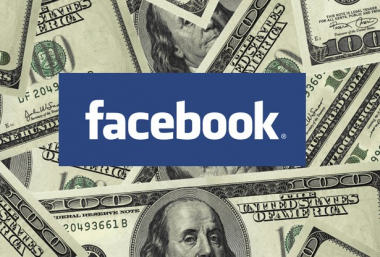It is David Ebersman’s fault. There is just no way around it.
Mr. Ebersman is Facebook’s well-liked, boyish-looking 41-year-old chief financial officer. He’s not as well known as Mark Zuckerberg, Facebook’s founder and chief executive, or Sheryl Sandberg, its chief operating officer and recently appointed director.
But when it came to Facebook’s catastrophe of an initial public offering — the stock reached a new low on Friday, closing at $18.06 — it was Mr. Ebersman, not Mr. Zuckerberg or Ms. Sandberg, who was ultimately the one pulling the strings.
Now, three months after the offering, the company has lost more than $50 billion in market value. Let me say that again for emphasis: Facebook’s market value has dropped more than $50 billion in 90 days.
To put that in perspective, that’s more market value than Lehman Brothers gave up in the entire year before it filed for bankruptcy.
A lot of ink has been spilled over Facebook’s I.P.O., with investors and pundits mostly pointing the finger at the Wall Street banks, particularly Morgan Stanley, which led the offering, and at Nasdaq, whose numerous computer glitches on Facebook’s first day of trading undermined confidence in the stock. They clearly deserve blame.
 Paul Sakuma/Associated PressDavid Ebersman, Facebook’s chief financial officer.
Paul Sakuma/Associated PressDavid Ebersman, Facebook’s chief financial officer.Mr. Ebersman’s name, however, is mentioned only occasionally, usually in passing and typically only among Silicon Valley’s cognoscenti.
And yet if there is one single individual more responsible than any other for the staggering mispricing of Facebook’s I.P.O., it is Mr. Ebersman. He signed off on the ever-increasing offer price, which ended up at $38 after the company had originally planned a price range of $29 to $34.
He — almost alone — pushed to flood the market with 25 percent more shares than originally planned in the final days before the offering. And since then, as the point person for investors, he has done little to articulate how or why the company’s strategy will lift the stock price any time soon.
At a time when investors are looking for some semblance of accountability on Wall Street and in corporate America, it is remarkable that nobody — no bankers, no one at Nasdaq, no one at Facebook — has been fired for botching the offering.
Mr. Zuckerberg reportedly told his employees after the I.P.O., “So, you’ve heard we’re firing David?” But it was only a joke.
Facebook’s falling stock price is not just a problem for investors; it is quickly creating real questions inside the company about its ability to retain and attract talented engineers, the lifeblood of any technology company.
Employees who joined the company starting in 2010, for example, are now holding onto restricted shares that were granted at a higher price — $24.10 — than the current trading price. (It should be noted that these are restricted stock units, not underwater stock options, so they do still have real value, but not nearly what the employees had expected.)
Employees with some two billion shares will have the opportunity to begin selling them this fall, which is one reason Facebook shares have been depressed lately.
A spokesman for Facebook, Elliot Schrage, declined to comment and would not make Mr. Ebersman available.
Mr. Ebersman appears to have badly misjudged the demand for Facebook’s I.P.O. He was aided by errant advice from a cadre of banking advisers, who all had an incentive to sell as many shares as possible at the highest price possible. Morgan Stanley liked $38 a share, JPMorgan Chase thought the shares could be sold for even more, while Goldman Sachs thought they should be sold for slightly less — but all of them quickly jumped on board when Mr. Ebersman made his final decision.
Determining the price of an I.P.O. is as much an art as a science. After a company’s roadshow presentations, investors indicate how many shares they plan to buy. They typically ask for more shares than they expect to receive, sometimes twice as many. But in the case of Facebook, investors, anticipating huge demand, put in requests for triple or quadruple the number of shares they expected to get.
The bankers — and Mr. Ebersman — did not seem to appreciate what was happening. They seem to have believed their own hype and took those orders as real, giving them the misplaced confidence to push the I.P.O. to the highest possible price and issue more shares.
But this wasn’t a traditional I.P.O. and should never have been priced that way. (People close to Mr. Ebersman say that he decided to issue additional shares with the goal of steadying the price this fall when the lockup on employee share sales expired. Consider that another miscalculation.)
Another issue that weighed on Mr. Ebersman, as well as the bank underwriters, was the example set by LinkedIn. Its shares rose 110 percent on its first day of trading. That might sound good, but it meant that the company mispriced the shares so badly that it effectively gave investors a gift of nearly $350 million. Mr. Ebersman was intent on making sure Facebook didn’t “leave money on the table,” according to several people close to him. But by leaving investors with little upside, he may have created additional pressure on the stock.
Both LinkedIn’s and Facebook’s I.P.O.’s should be considered failures — they were extreme examples of what could happen on the upside and the downside. The ideal offering lands somewhere in the middle. Still, there is no question that investors would prefer another LinkedIn over a Facebook, and they have every incentive to make an example of the company — and Mr. Ebersman — so that other companies don’t try to wipe out that first-day “pop.”
None of this is meant to suggest that Mr. Ebersman is dumb or unqualified. A graduate of Brown who was the chief financial officer of Genentech when he was just 34, Mr. Ebersman is bright, perhaps even brilliant. He was recruited to Facebook by Ms. Sandberg, a hire that was considered quite a coup at the time. He should clearly be given credit for negotiating favorable and extraordinarily large credit lines — $8 billion worth — with Wall Street banks, which could provide the company with an important lifeline should the economy and the company’s fortunes suffer.
The disclosures in the company’s I.P.O. prospectus — which were Mr. Ebersman’s responsibility — were, for the most part, pretty transparent, giving investors a good sense of the business, despite all the hype. And the I.P.O., for all its failures, filled Facebook’s coffers with some $10 billion.
Still, Mr. Ebersman has his work cut out for him as he tries to regain the trust of shareholders. He recently came to New York to meet with big investors, including hedge funds and institutional investors. Some invitations for meetings were oddly, and somewhat imperiously, sent out on Thursday night for meetings on Friday. Given that it was summer, some investors sent their junior analysts.
When Facebook’s I.P.O. first started to appear troubled back in May, I purposely avoided weighing in. Frankly, I thought it was too soon to judge.
But we have passed the pivotal three-month mark.
Statistically, the three-month mark is a much better predictor of a company’s future share price than any of the closing prices in the first week or two. According to Richard Peterson of Capital IQ, 67 percent of technology companies whose shares lagged their I.P.O. price after 90 days were still laggards after a year. Until Facebook’s stock rebounds, Mr. Ebersman will be feeling the pressure.
Via: DealBook











